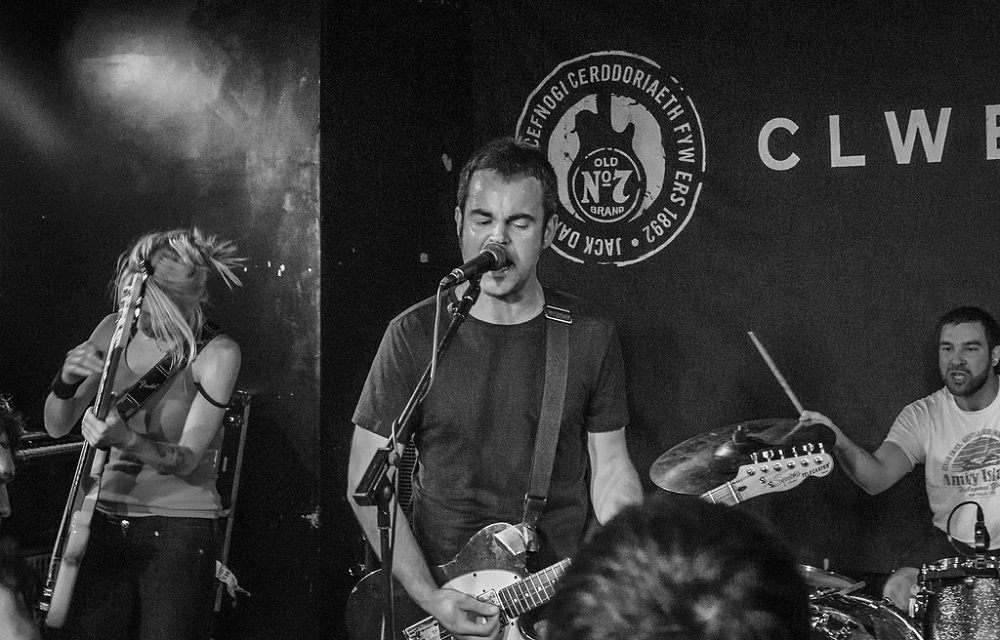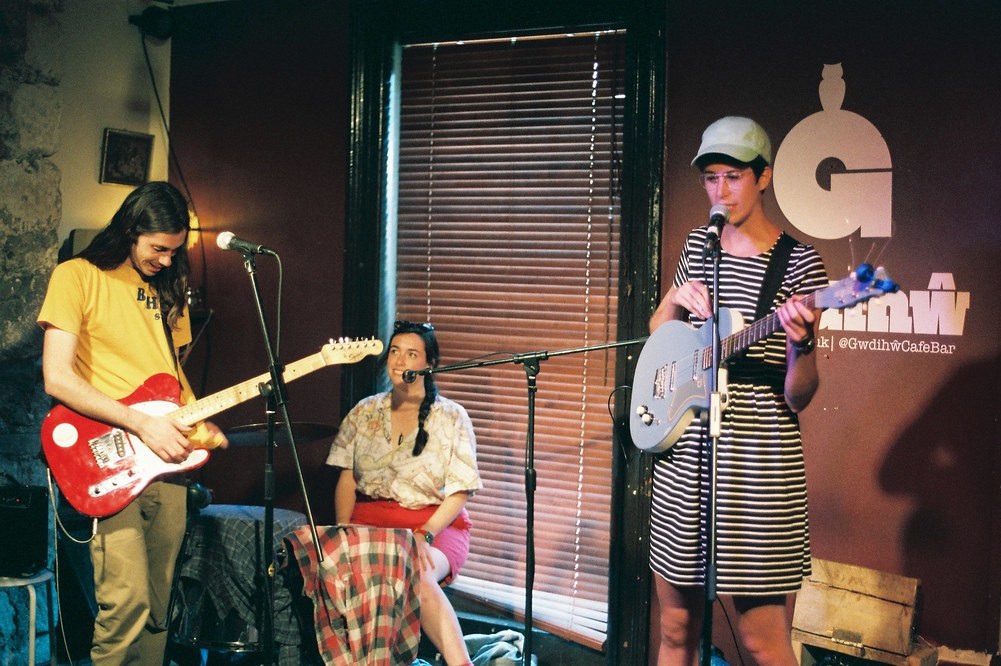From Music City to Silent City – the decline of live music in Cardiff

Jasmine Keady
In 2017 Cardiff was named as the UK’s first “music city” and Cardiff council pledged to develop a new music strategy which aimed to protect the city’s music scene and boost the city’s international profile.
But since then, more and more beloved venues have been forced to close their doors, despite public opposition and just last week proposals to demolish Porters’ performance space to build another high-rise, were made public.
Cardiff has long prided itself on its booming music scene. In the early 1990s rock music dominated the city with many bands kickstarting their careers here, including Kids in Glass Houses, Super Furry Animals, Manic Street Preachers, Feeder, Stereophonics and Funeral for a Friend. The contemporary map of the capital is still peppered with a range of music venues offering anything from free gigs at The Moon, through alternative and well-known artists at Clwb Ifor Bach and acoustic acts at Tiny Rebel to raging rock musicians at Fuel.
Add in the open mic nights right across the city and you have pretty much all bases covered.
However, since I first came to live here as a student four years ago, many venues have disappeared. The main reasons? Seemingly greedy landlords and a perplexing need for more and more accommodation. Yet with fewer and fewer music venues will this not mean Cardiff becomes a lifeless place?
Magic
On Pen-Y-Wain road, Roath there was once a café called Deli Rouge. Every Wednesday I would delve into the magic of open mic nights in this tight, cosy community space. This was a home to me, where I would clap my hands in or out of time with the music, the final half hour of the night ending with a communal group hug.
We sang Amy Winehouse’s “Valerie” or Michael Kiwanuka’s “Love and Hate” to accompany Finlay Pelling, a folk musician and host of these nights, often wearing a purple silk cape in keeping with his flamboyant style.
A regular singer at open mic nights, Steve Kenward, voices his frustration. ‘’Every small venue that closes makes it harder for people to take their first chance at performing, sharing and connecting with the creative community. Twenty years ago, when I was a teenager we had so many successful venues that by the time we had performed 10 gigs we were playing alongside nationally known, signed bands. These days it feels like you need a lot of experience and sway on the scene to get gigs of equal importance.’’
Bootlegger
In a cobbled alleyway, opposite Cardiff Castle, is Womanby street, with swinging cocktail bars such as Bootlegger. You can stumble from one venue to the next, infectious music spilling onto the street, feeling especially alive because of the electricity sparked by people’s love for the music.
I’ve spent many nights dancing with strangers in circles, clapping each other as we whip out our finest moves, not afraid of being judged, and cheering the many artists who have conquered the crowds with their relentless energy.
Yet, in 2017 this thriving musical street was in jeopardy. The Wetherspoons pub, the Gatekeeper had plans to build a hotel alongside a separate application for flats to be built next to iconic indie-music hub Clwb Ifor Bach. They wanted a quiet street.
A petition was launched to prevent Womanby Street’s grassroot venues from disappearing. This was signed by thousands of people and backed by Cardiff politicians, with one saying that they feared the creation of the flats would “represent an outright risk to existing operations on Womanby Street.”
A colossal march took place with venue owners, musicians, music fans, politicians and students all taking to the street with cardboard signs, glittering faces and thunderous chants to defend a place that does not discriminate against cultures, dress-sense, or how loud you want to sing. On the 28 September 2017, developers withdrew their controversial plans. The noise of the people had won.

Yet, in December 2018, another fight started. Gwdihŵ (Welsh for Owl) Café Bar, a colourful grassroots venue on Guildford Crescent was set to close.
Business owners refused to renew the lease as they wanted to demolish this striking structure and replace it with a tower block. Again, 1,000s of people painted banners and brought out their drums to save this pint-sized place which had been the starting point for bands such as Boy Azooga, Catfish and the Bottlemen and Buzzard as they performed to small crowds at the start of their careers.
Despite pleas to the landlord and the council, the many protests and a petition signed by no fewer than 20,000 people, this venue closed too, in 2018.
I went to the last night. Funk and jazz bands such as Wonderbrass, ramnastax and Year of the Dog provided the live soundtrack. Many tears were shed as the place had the send-off it deserved and the party kept going until the booze had all gone. Megan Purnell, a music enthusiast was also there. She says that ‘’Seeing these venues diminish over time has been heart-breaking, losing places where we made memories. I moved to a city proud of its music culture and I’ve ended up in a completely different place.”
Rates
Grass-root venues seem constantly in danger. Buffalo was the next to go. It announced its closure only a month after Gwdihŵ, citing a “massive increase” in business rates as one of the reasons.
Buffalo had opened in 2005, enchanting crowds with the likes of Adele, Stormzy, Disclosure and James Blake when they were rising stars. Its regular Monday night R&B event, Bump and Grind, was a welcome alternative to the indie-rock vibes of Womanby street.
DJ and promoter Mikey Snooze, who ran regular nights there said: “I felt real sadness when I heard the news. It was where I started out and worked with people who became my best mates. I owe a lot to Buffalo for my DJ career.”
Then there was WOW, an eccentric bar with rows of silver glittering disco balls and luminous yellow pillars which hosted regular drag nights. WOW Bar is the second LGBT+ venue to close these past 2 years, with cabaret bar Minsky’s Show bar announcing it would be closing in March after 25 years, due to their lease not being renewed. Without WOW, there is a risk of the LGBTQ scene losing its identity in this accepting city. I hope Cardiff’s rainbow doesn’t fade to black and white.
Similarly, Ten Feet Tall is a grassroots venue that impressively blends a bar and music venue. Last year, however, the staff became aware of plans to transform this into a restaurant and shop – they were so appalled that they resigned with immediate effect.
My boyfriend tells me he played his jazz infused electronic music here and ‘’the venue was very welcoming and friendly.’’ Cardiff Central MP Jo Stevens was among those objecting to this loss of live music, saying the area was already “saturated” with restaurants.
The independent businesses of Cardiff, particularly the music venues, are what makes it a distinctive city. If they all go, the people will go. Live music is what makes our hearts thud, our feet skip and causes our souls to soar. We must keep the sound of Cardiff turned up to full max. Let’s not let a city fall into silence.

Support our Nation today
For the price of a cup of coffee a month you can help us create an independent, not-for-profit, national news service for the people of Wales, by the people of Wales.





